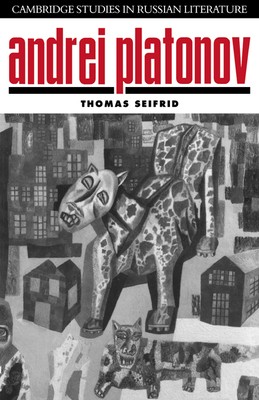
- We will send in 10–14 business days.
- Author: Thomas Seifrid
- Publisher: Cambridge University Press
- ISBN-10: 052102675X
- ISBN-13: 9780521026758
- Format: 14 x 21.6 x 1.7 cm, softcover
- Language: English
- SAVE -10% with code: EXTRA
Reviews
Description
The Soviet writer Andrei Platonov (1899-1951) belongs to a Russian philosophical tradition that includes such figures as Vladimir Solov'ev, Mikhail Bakhtin, and Boris Pasternak. This study investigates the interrelation of themes, imagery, and the use of language in his prose. Thomas Seifrid shows how Platonov was particularly influenced by Russian utopian thought of the late nineteenth and early twentieth centuries, and how his world view was also shaped by its implicit dialogue with the "official" Soviet philosophy of Marxism-Leninism, and later with Stalinist utopianism.
EXTRA 10 % discount with code: EXTRA
The promotion ends in 20d.07:50:54
The discount code is valid when purchasing from 10 €. Discounts do not stack.
- Author: Thomas Seifrid
- Publisher: Cambridge University Press
- ISBN-10: 052102675X
- ISBN-13: 9780521026758
- Format: 14 x 21.6 x 1.7 cm, softcover
- Language: English English
The Soviet writer Andrei Platonov (1899-1951) belongs to a Russian philosophical tradition that includes such figures as Vladimir Solov'ev, Mikhail Bakhtin, and Boris Pasternak. This study investigates the interrelation of themes, imagery, and the use of language in his prose. Thomas Seifrid shows how Platonov was particularly influenced by Russian utopian thought of the late nineteenth and early twentieth centuries, and how his world view was also shaped by its implicit dialogue with the "official" Soviet philosophy of Marxism-Leninism, and later with Stalinist utopianism.


Reviews